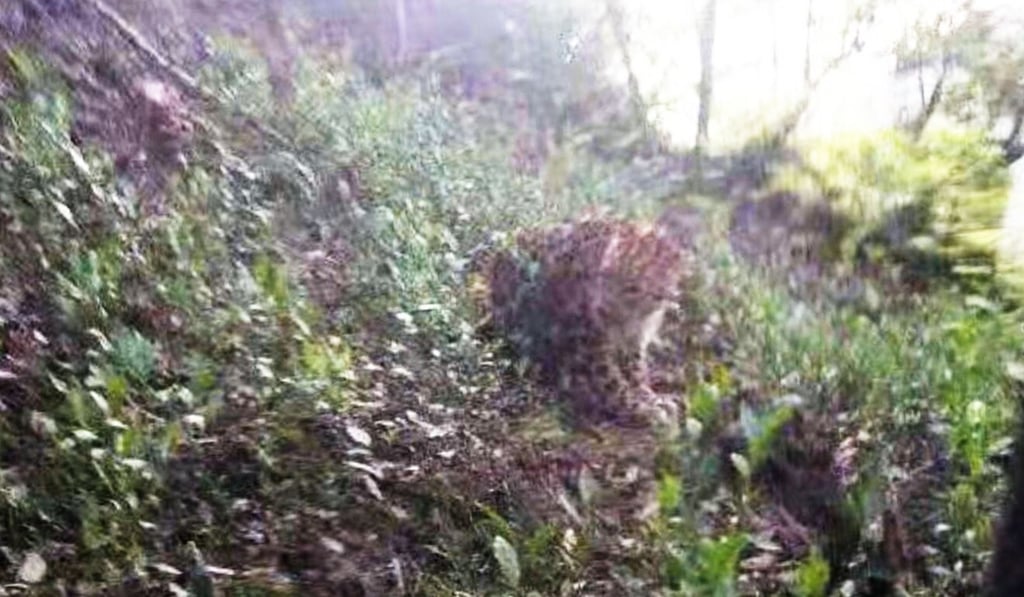Advertisement
Leopard stays one step ahead in east China game of big cat and mouse
- Last of three juveniles that escaped from safari park in Hangzhou seen on mountainside on Sunday but manages to evade capture
- More than 1,000 people, including specialist police officers, involved in round-the-clock search, CCTV reports
Reading Time:2 minutes
Why you can trust SCMP
2

The last of a trio of leopards that escaped from a safari park in Hangzhou continued to evade capture on Sunday, outwitting its pursuers in a mountainside game of big cat and mouse.
The leopard – one of three juvenile siblings thought to have broken free last weekend – was spotted about noon near the village of Hejiacun, around 5.5km (3½ miles) from its former home, according to The Beijing News.
The animal was caught on camera by a drone, but by the time its pursuers arrived on the scene it had disappeared into the mountains, the report said.
Advertisement
A restaurant owner in Hejiacun said in an interview that a special police team was leading the hunt and that people had been urged to stay away from the mountain.
“Villagers are staying at home, but shops and restaurants remain open,” she said. “About 500 people are here to help [the search].”
Advertisement

Advertisement
Select Voice
Choose your listening speed
Get through articles 2x faster
1.25x
250 WPM
Slow
Average
Fast
1.25x